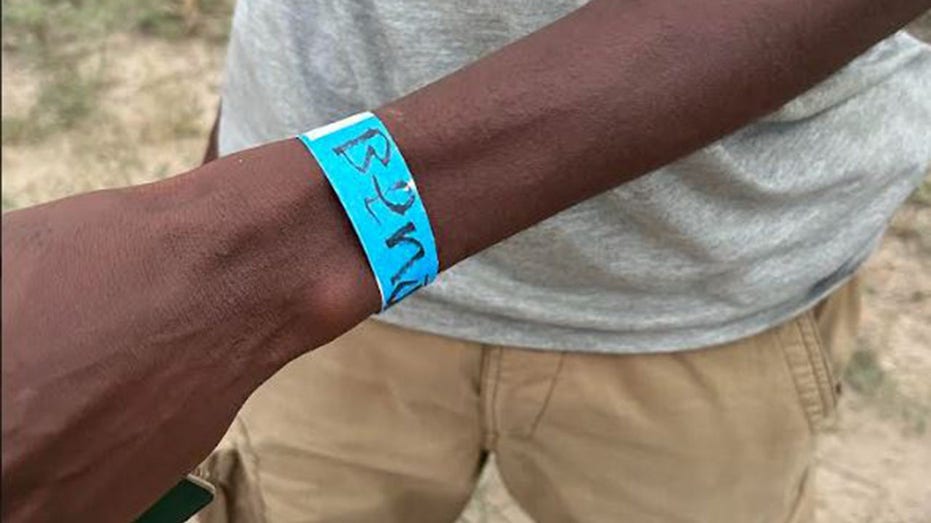Mexican cartels using bracelets as proof of payment for migrants to cross into US, Texas DPS says
Migrants hoping to cross illegally from Mexico into Texas are being given bracelets to wear by cartels to show proof that they paid to be smuggled, authorities said.

Mexican drug cartels have seemingly adopted a tactic of placing colored wristbands on migrants as they cross illegally into the United States through Texas, signifying a more coordinated effort to control who comes across the border, authorities said Tuesday.
In the border city of Eagle Pass, Texas, blue wristbands with names were found discarded on the ground amid piles of trash and clothing. The wristbands are similar to bracelets placed on migrants who cross illegally into Texas through the Rio Grande Valley in south Texas, Lt. Chris Olivarez of the Texas Department of Public Safety told Fox News Digital.
"We've always seen that in those areas. We've never seen that in Eagle Pass," he said. "That tells us it's more controlled, more coordinated by the cartels."
ILLEGAL IMMIGRANT BITES BORDER PATROL AGENT IN THE FACE AMID ‘SIGNIFICANT RISE’ OF ATTACKS ON CBP
Cartels often use bracelets to signify proof of payment to smugglers, said Olivarez.
"If they have a blue one, they can only cross in this area. If they have a red one, they can only cross in that area," he said.
Much of the border area in Mexico across from the Rio Grande Valley and Eagle Pass is controlled by the Cartel del Noreste (CDN), the successor cartel to the Los Zetas, which was known for its brutal and violent methods.
Cartels have always charged migrants to cross into the U.S. through their territory. Those who try to avoid the steep smuggling fees and cross on their own do so at their own peril, Olivarez said.
CAUGHT ON CAMERA: FENCE-CUTTING MIGRANTS BUSTED BY FEDS
Despite a decline in migrant encounters in Texas, authorities are still seeing an average of 2,000 illegal immigrants per day on the southwest border, Olivarez said, including 300 per day in Eagle Pass.
He noted that the number of special interest migrants from various countries has increased, as well as unaccompanied children. Some migrants have traveled from as far away as Iran, Pakistan, Turkey and Africa.
Special interest migrants are those who potentially pose a national security risk to the U.S. or its interests based on their travel patterns, according to the Department of Homeland Security (DHS).
The designation doesn't mean the migrants are "terrorists," but that their travel and behavior indicates a possible link to nefarious activity, including terrorism, that requires further screening and investigation, DHS says on its website.



